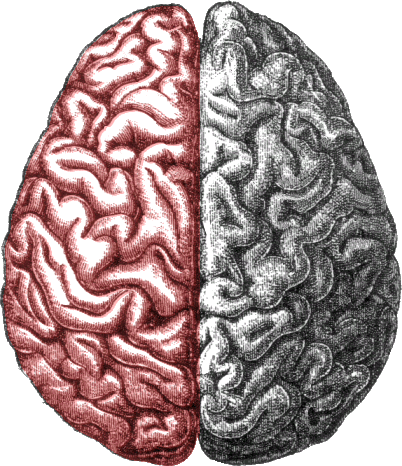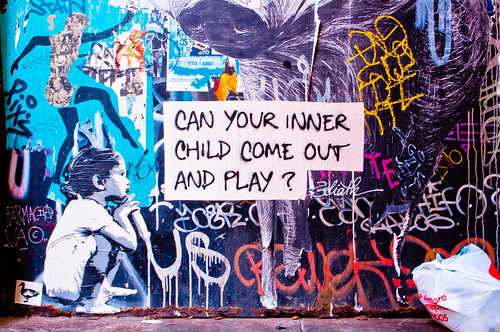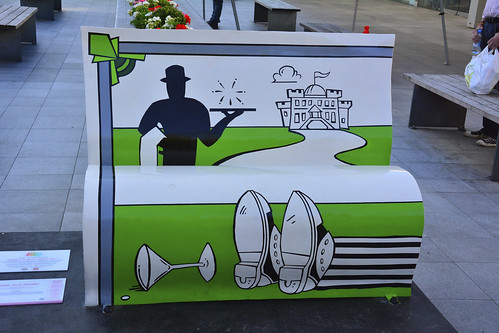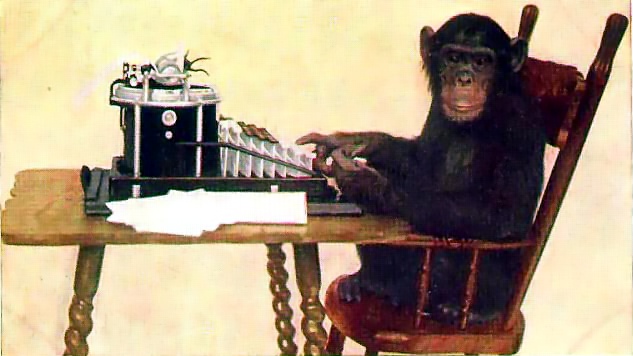We are all, to some extent, Jekyll and Hyde. I don’t mean to suggest that we all make & take potions and turn into insane murderers (I feel sure I would have noticed), but we all have different sides to our selves. Not good vs evil necessarily, but, say, left-brain vs. right-brain.

The writing teacher Dorothea Brande suggests that in order to make the best use of these different elements of ourselves – she is speaking of the creative and critical functions – it is best to consider and develop them separately.
“By isolating as far as possible the functions of these two sides of the mind, even by considering them not merely as aspects of the same mind but as separate personalities, we can arrive at a kind of working metaphor, impossible to confuse with reality, but infinitely helpful in self-education.”
To arrive at the working metaphor: that was my goal. As I have mentioned before, there are few things I enjoy more than a really good metaphor.
Left brain / right brain, however, isn’t much of a metaphor, and it’s hard to visualize for someone who has never seen her brain (and doesn’t much want to).

The next classic metaphor is the “inner child” – which didn’t really work for me. While my creative side is frequently childlike, it isn’t like a child – and my “adult” self is frequently less than adult!
The thing is, in order to make the best use of the two sides, they need to work together; there needs to be a kind of equality between them. Adult/child is not a relationship of equality.
Yes, the creative side needs to submit to the ordered side’s discipline, or nothing would ever be achieved; but the ordered side’s authority is exercised solely to create the best conditions for the creative side. (Or at least it should be.)
I started considering relationships where this is the case.

The Governess, I decided, was an excellent metaphor for the ordered side: she governs, she educates, she assesses, she provides encouragement and rebuke as necessary, and she wields her authority for the good of her charge.
The only downside is that governesses do all this for children, and my inner self, etc etc. I suppose it is possible to have a governess for a lunatic (seems like something Chesterton would write) but I’m not sure that I’m that far gone.
Then I had a brain-wave: Jeeves and Wooster. Bertram Wilberforce Wooster is the immature undisciplined creative all-over-the-place person par excellence, and Jeeves’ whole raison d’être is to provide for his every need (if not want) and keep him out of prison, matrimony, and unsuitable apparel.

As mentally satisfying as that metaphor was, it still wasn’t quite ‘me’. My ordered side is more a Miss Silver than a Jeeves, and I’d like to think my creative side is less clueless than a Wooster. The Great Metaphor Hunt went on.
Eventually I realized that the metaphors for the two sides don’t have to ‘belong’ together, as satisfying as it would be if they did. I could pair the Governess metaphor with a non-child metaphor. But what?
The creative side really was much harder to pin down, which is fitting, I suppose. After some thought, I settled on the Jester – one of those simple souls who capers about singing songs of joy or sorrow and saying the sorts of things that reasonable people get their heads chopped off for. This is the side of me that laughs at toilet humour and howls at the moon. (I think it is best for everybody if I don’t sing.)

Interestingly, I’ve noticed a difference in what I like to wear, depending on which aspect is in the ascendant, or in use, whichever way you like to look at it.
The Governess side of me likes to wear 1930s style clothes: tailored, smart and tidy. The Jester, on the other hand, has a more medieval aesthetic: flowing garments one can move freely in, preferably topped with a funny hat of some sort (with or without bells).
Perhaps I can use that as a way to toggle the two sides. The Governess makes the plans for the day’s work, and then on go the ancestral dressing-gown and the funny hat, and the Jester comes out to play. When it comes time to review and edit, off with the funny hat.

Do you have recognized sides to your self? Do you have metaphors for them? I’d love to know!










